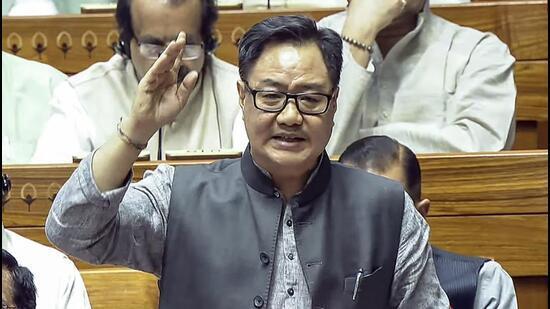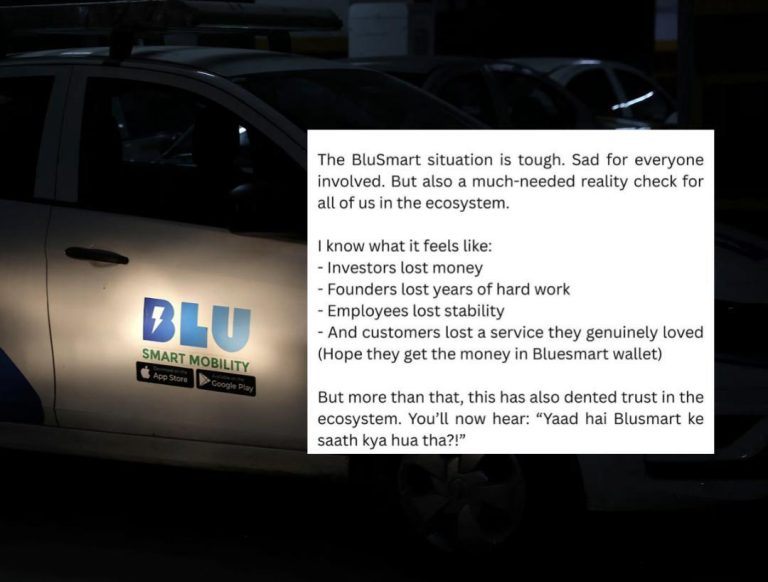
Opposition creates confusion & leaves House: Rijiju in Rajya Sabha
The Rajya Sabha witnessed a heated debate on the Waqf (Amendment) Bill on Thursday, with Union Minister Kiren Rijiju criticizing senior opposition members for creating confusion and raising issues without staying back to listen to the replies. The remarks were made during the discussion on the bill, which is aimed at bringing transparency and accountability to the Waqf boards.
Rijiju, who is the Minister of State for Youth Affairs and Sports, took a dig at senior Rajya Sabha member Kapil Sibal for creating confusion by comparing the properties of Waqf bodies with those of other religious bodies. Sibal had raised concerns that the bill could lead to the commercialization of Waqf properties, which are meant for religious and charitable purposes.
The minister’s remarks were in response to Sibal’s statement, which he claimed was an attempt to create confusion among the members of the House. Rijiju argued that the opposition was trying to mislead the public and create a controversy where none existed.
“It is unfortunate that some senior members of the opposition are creating confusion and raising issues without staying back to listen to the replies,” Rijiju said. “They are trying to create a controversy where none exists, and it is unfortunate that they are doing so.”
The minister’s comments came as a response to Sibal’s allegations that the government was trying to take away the autonomy of the Waqf boards. Sibal had claimed that the bill would allow the government to take control of the Waqf properties, which would be against the spirit of the Constitution.
However, Rijiju refuted these allegations, stating that the bill was aimed at bringing transparency and accountability to the Waqf boards. He claimed that the bill would ensure that the Waqf properties were used for their intended purpose and that there was no scope for mismanagement or misappropriation of funds.
The minister also criticized the opposition for not staying back to listen to the replies to their questions. He claimed that this was a sign of their lack of interest in the debate and their attempt to create a controversy for the sake of it.
“It is unfortunate that some senior members of the opposition are not staying back to listen to the replies,” Rijiju said. “They are raising issues and then leaving the House without staying back to listen to the replies. This is a sign of their lack of interest in the debate and their attempt to create a controversy for the sake of it.”
The Waqf (Amendment) Bill was introduced by the government in the Rajya Sabha last week. The bill aims to bring transparency and accountability to the Waqf boards, which manage religious and charitable properties across the country.
The bill proposes to increase the representation of minorities on the Waqf boards and to ensure that the funds collected from the Waqf properties are used for their intended purpose. It also proposes to set up a Waqf appellate tribunal to hear appeals against the decisions of the Waqf boards.
The opposition, however, has raised concerns that the bill could lead to the commercialization of Waqf properties and that it is an attempt by the government to take away the autonomy of the Waqf boards.
The debate on the bill is expected to continue in the coming days, with both sides presenting their arguments and counter-arguments.
In conclusion, the debate on the Waqf (Amendment) Bill in the Rajya Sabha has highlighted the differences between the government and the opposition on the issue of transparency and accountability in the management of Waqf properties. While the government claims that the bill is aimed at bringing transparency and accountability to the Waqf boards, the opposition alleges that it is an attempt by the government to take away the autonomy of the Waqf boards.
As the debate continues, it is important for the members of the House to stay focused on the issues at hand and to avoid creating confusion and controversy for the sake of it. It is also important for the government and the opposition to work together to find a solution that benefits all stakeholders involved.






